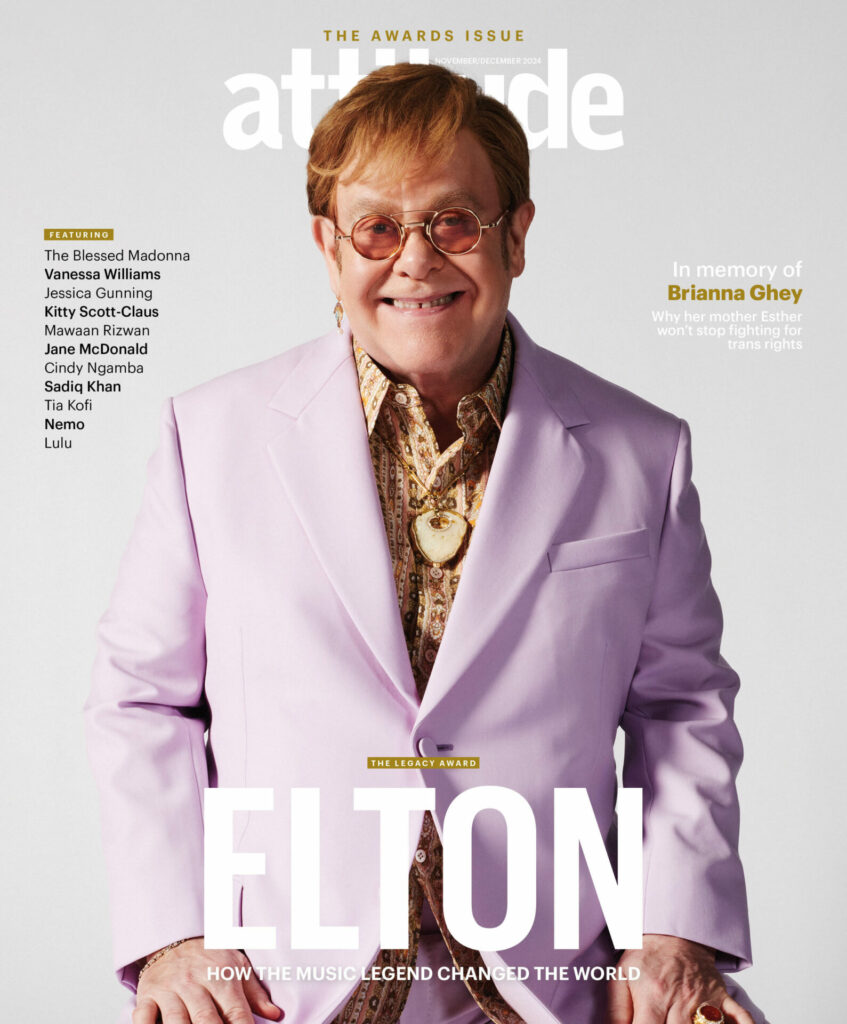Nemo on Eurovision and coming out: ‘Maybe my journey is not complete’
If Laverne Cox on the cover of TIME was ‘the transgender tipping point’, then Nemo winning Eurovision 2024 should be ‘the non-binary code break’. Six months on, we catch up with a star at a pivotal moment in their life and career, and name them our Person of the Year, supported by Virgin Atlantic, at the Virgin Atlantic Attitude Awards, powered by Jaguar
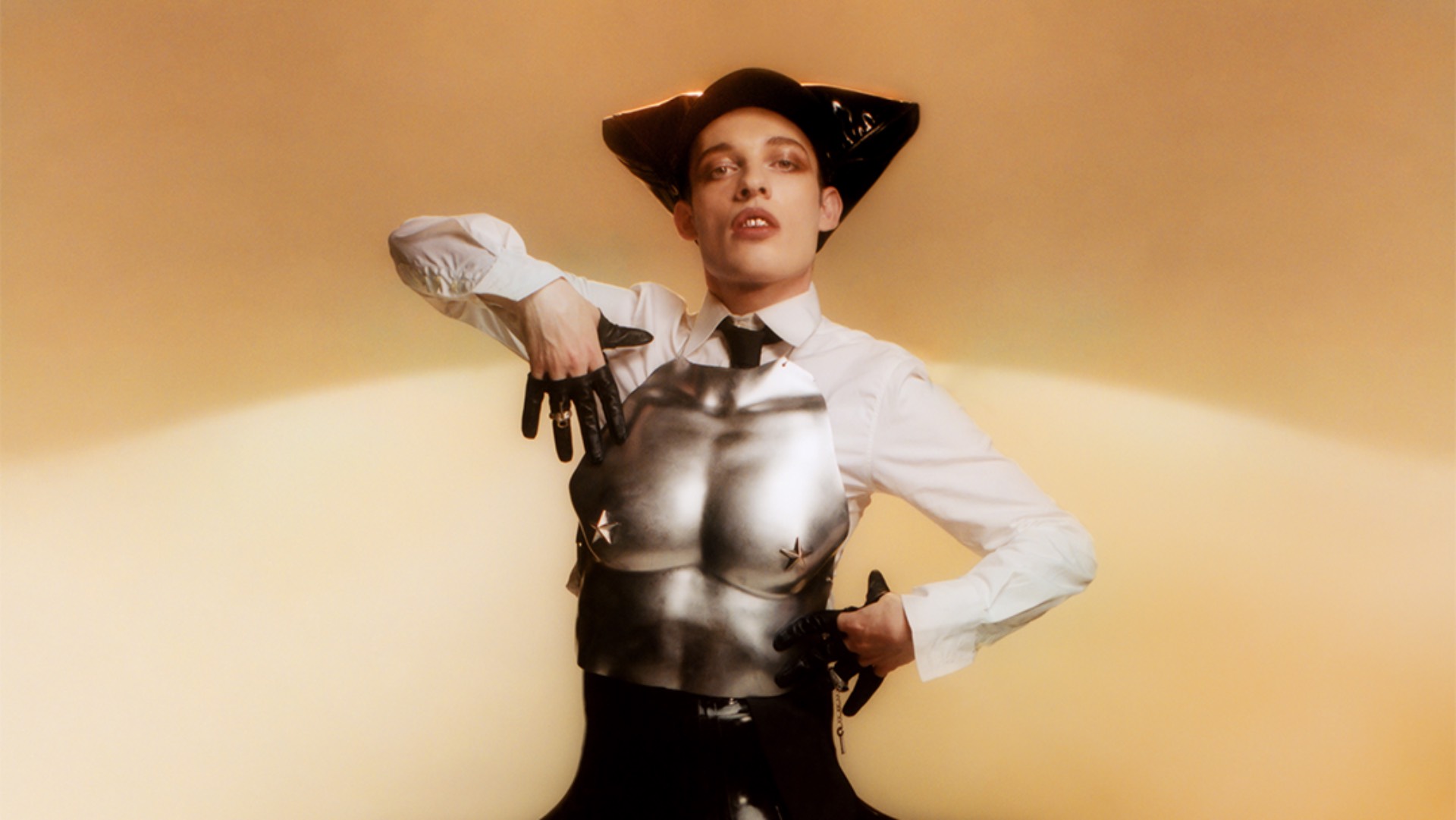
The last few months have been quite the rollercoaster…” says Switzerland’s finest, Nemo, of life since becoming the first publicly non-binary person to win the Eurovision Song Contest, held in Malmö, Sweden, in May this year. “It’s been an overwhelming experience at times. Also, mentally, I feel like some of the middle has gone. I’m either super euphoric, or on the verge of a mental breakdown sometimes…” They laugh nervously, but lightly, and when we ask them point blank how they are, they say “good”, later adding, “This industry is quite something. I just have to find my way of dealing with all of this.”
If this introduction sets a trepidatory tone, let us make one thing clear: Nemo is powerful in their vulnerability, and that is as much worth celebrating as everything else about them. The same goes for ‘Good Luck, Babe!’ singer Chappell Roan, who has publicly called out “predatory behaviour disguised as ‘superfan’ behaviour” of late, before revealing in an interview that the pace and pressure of fame had led to a diagnosis of severe depression.
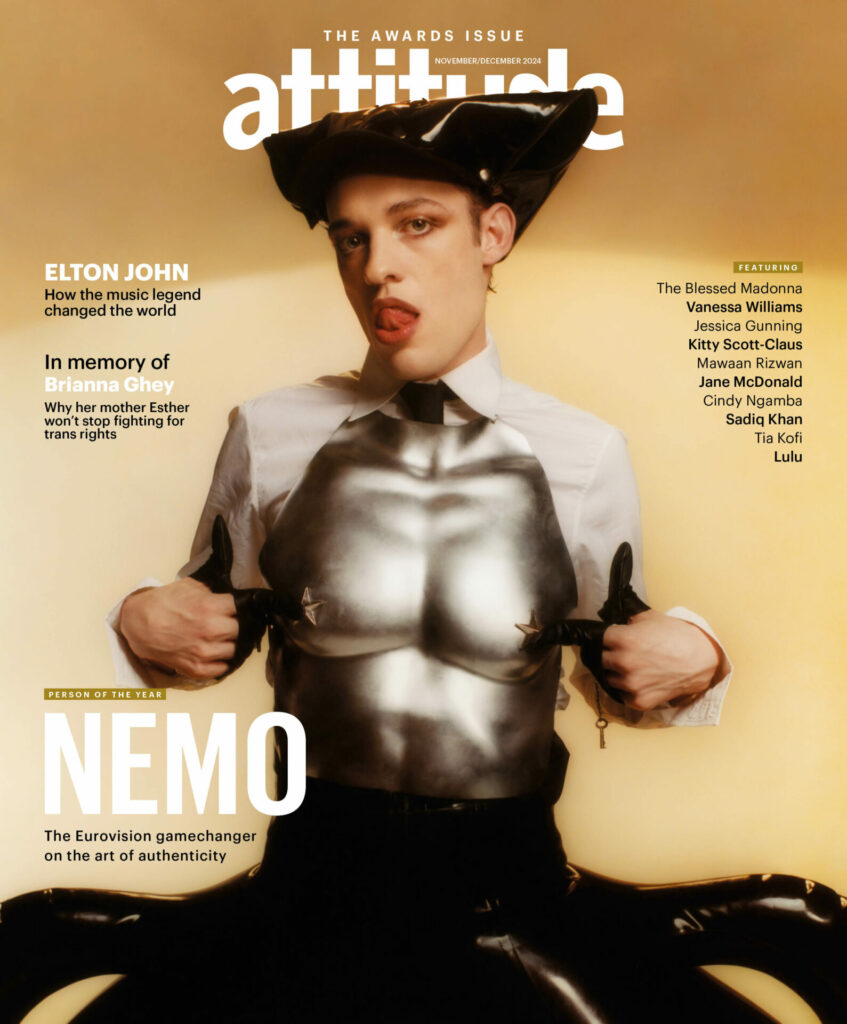
“It’s very brave and good of her to speak up about these things,” says Nemo, awarded our Person of the Year, supported by Virgin Atlantic, at this year’s Virgin Atlantic Attitude Awards, powered by Jaguar. “It’s not anywhere close [for me] to how it is for her — she just exploded onto the map! — but this comes with sides that people don’t know about and can’t even imagine. There’s a lot of pressure, and a lot of people suddenly entering your space that would not have before.” (For the record, Biel-born Nemo assures us that they are leaning on a reliable network of immediate family for support, along with friends made pre-Eurovision in their “second home” of Berlin, where Nemo lived for four years before moving to London just weeks ago. “2023 was my friendship year — I made a lot of friends, so that was perfect timing!” they say. “I try to stay in touch as much as I can.”)
It’s good to see Nemo, who uses they/them pronouns, inspired by Chappell’s candour. Most of their fan interactions are “amazing”, they say — a fanbase comprised of “a lot of queer people; a lot of warm, loving people” — save for the occasional “weird encounter, like when people start filming you from afar. I usually go up to them and am like: ‘What are you doing?!’ Then they realise how weird it is!” There are no such interruptions tonight. It’s fascinating to see the quiet, contemplative person sat before us, tucked away in the corner of a King’s Cross restaurant, flying under the radar. It’s an enjoyable contrast to the Nemo who stormed Eurovision in tulle-tastic pink, their irrepressible mop of curls bouncing away as they perched precariously atop a spinning platform for their winning performance: an image emblazoned on pop culture just like Conchita’s beard-and-gown combo and Loreen’s Edward Scissorhands-style manicure.
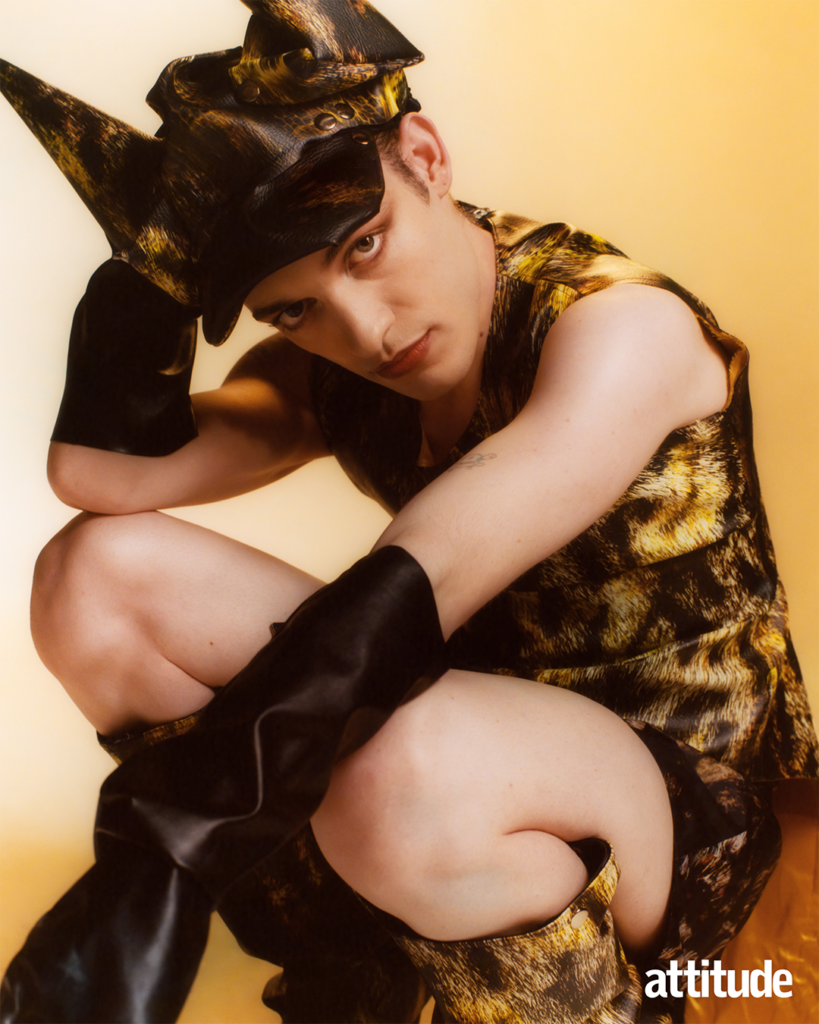
That was a masterclass in youthful exuberance, but tonight Nemo is a picture of urban sophistication in a skirt and top in muted tones, curls slicked back after their Attitude shoot and doe eyes accentuated with subtle slicks of eyeliner. They look amazing, albeit not quite like themselves, but only in the sense that they’re breaking out of a tulle- shaped mould, as they have many times before. Their preoccupation with a pair of kink-tastic inflatable black trousers from today’s shoot, designed by HARRI and previously worn by Sam Smith at the 2023 BRIT Awards, might well indicate what’s to come. (Nemo calls it their “favourite look” yet.)
This ability to shapeshift is surely reminiscent of many of history’s greatest pop stars, and so now is probably the time for the drawing of boundaries. From ABBA to Måneskin to Dana International — the latter the first publicly trans person to win the contest in 1998 — the increasingly global profile afforded by Eurovision success is not so much a well-trodden path as a path laden with spotlights, laser beams and pyrotechnics. Sweden, after all, invested 2.5 million euros in a production as glossily grandiose as any TV talent show, politainment rally or sporting tournament, and Nemo, for our money, has what it takes to blaze a trail well beyond it.
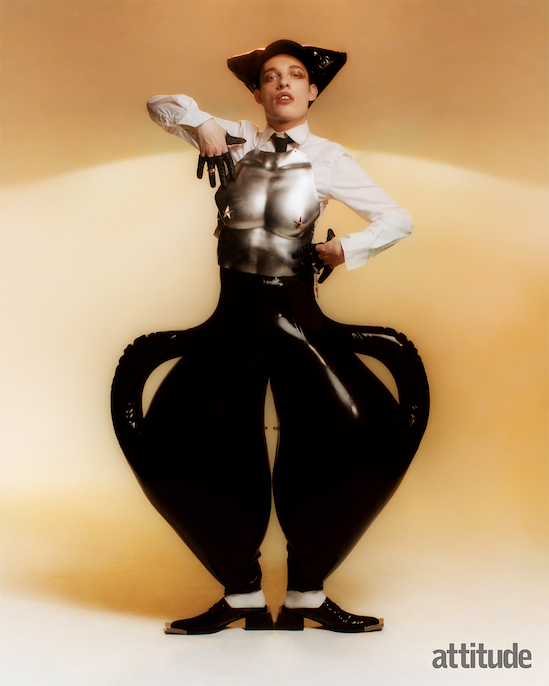
They have a staggeringly broad vocal range and a fearless fashion sense, for sure, but what we’re really struck by is their intelligence. They are hyper articulate. Conversation with them is as intellectually stimulating as their self-penned lyrics to ‘The Code’, a song about accepting a non-binary identity broadcast to 163 million viewers at Eurovision. “I went to hell and back / To find myself on track / I broke the code,” they sang, elated, over a three-minute cacophony of pop, rock, rap, drum and bass and classical music that bursts with life, demystifying a complex subject with the soul-searching clarity of Adele writing about heartbreak or Billie Eilish on mental health. “It’s an ‘I’ve figured myself out’ viewpoint,” reflects Nemo. “I gave myself the space and love to be honest with myself, even though there’s pressure from the outside. The moment I wrote it, I was like, ‘I’m getting to the core of myself.’”
It’s the kind of cultural artefact that, like the Wachowskis’ Matrix film series (famously a metaphor for the trans experience), as well as one of 2024’s best films, I Saw the TV Glow, now lies in wait for the queer and gender-questioning among us, this writer included. The validation, emotional unburdening and empowerment in its message is potentially life-changing, whether for nominally cis gay male pop fans like yours truly, LGBTQ+s more generally, or schoolkids in the front row at Nemo’s homecoming concert in Switzerland. “I looked at them and thought, ‘These are the type of kids that probably would have bullied me in school back then,’” they say. “But now they’re here, and they’re embracing this! They might not be queer themselves, but they see someone who is queer as not bad or embarrassing. As a role model in another way, perhaps. We’re starting to create an atmosphere where people get to think about these things earlier on in their lives. And that’s really beautiful.”
This is an excerpt from an interview in the Attitude Awards issue 2024. To read the full interview, order your copy now or check out the Attitude app.
Photography Tom Johnson Creative director Joseph Kocharian
